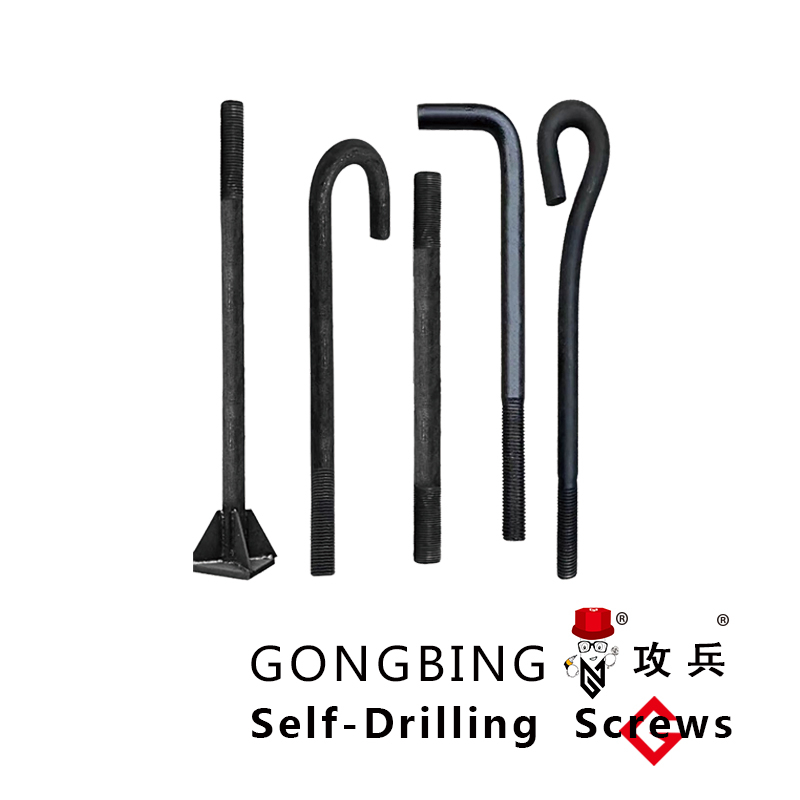Chemset Anchor Bolts for Secure Structural Fixings and Enhanced Load Bearing Performance
Understanding Chemset Anchor Bolts A Comprehensive Overview
Chemset anchor bolts are a specialized type of fastening solution used extensively in construction and engineering applications. These bolts, which utilize adhesive methods for anchoring, provide a robust solution for securing structures and fixtures to concrete and masonry. Whether for residential, commercial, or industrial purposes, chemset anchor bolts play a critical role in ensuring stability and safety in numerous applications.
What are Chemset Anchor Bolts?
Chemset anchor bolts consist of a metal bolt and a corresponding chemical adhesive that is used to bond the bolt within a pre-drilled hole in concrete or masonry. The adhesive used is typically a two-part epoxy or polyester resin, which, when mixed and applied, forms a strong bond with the surrounding material. This anchoring method is particularly advantageous in situations where traditional mechanical anchors may not be effective, such as in cracked or compromised concrete.
Applications of Chemset Anchor Bolts
The versatility of chemset anchor bolts makes them suitable for a wide range of applications. They are commonly used in
1. Structural Support Chemset anchors provide support for various structural elements, including beams, trusses, and columns, especially in high-load scenarios. 2. Equipment Installation These anchors are ideal for securing heavy machinery, HVAC systems, or other substantial equipment to the building framework.
3. Concrete Repair In repair and retrofit projects, chemset anchor bolts can re-establish structural integrity by securely attaching new elements to existing concrete.
4. Outdoor Applications Chemset anchors can withstand environmental stressors, making them suitable for outdoor installations like signage, lighting fixtures, and fencing.
Advantages of Chemset Anchor Bolts
There are several advantages associated with the use of chemset anchor bolts compared to traditional mechanical anchoring systems
2. Reduced Risk of Damage Since chemset anchors distribute loads more evenly, they are less likely to cause crack propagation in surrounding concrete, especially in seismic applications.
chemset anchor bolt

3. Versatility They can be used in a wide range of materials, including concrete, brick, and block, making them a flexible choice for various projects.
4. Ease of Installation The installation process involves simple drilling, mixing, and application. Once the adhesive cures, the bond is typically stronger than the surrounding material.
5. Corrosion Resistance Many chemset anchors are designed to resist corrosion, making them suitable for harsh environments or outdoor use.
Installation Process
The installation of chemset anchor bolts involves several critical steps
1. Preparation Ensure that the base material is clean and free from any debris. This helps to maximize the bond strength of the epoxy or adhesive.
2. Drilling Use a hammer drill to create a hole of the appropriate diameter and depth as specified by the manufacturer's guidelines.
3. Mixing the Adhesive Follow the manufacturer’s instructions for mixing the adhesive components. It is crucial to achieve the correct ratio to ensure optimal performance.
4. Filling the Hole Inject the mixed adhesive into the drilled hole, filling it adequately to ensure complete contact when the bolt is inserted.
5. Inserting the Bolt Insert the bolt while twisting it slightly to allow the adhesive to spread evenly around the bolt.
6. Curing Time Allow the adhesive to cure for the recommended time before applying any load to the anchor bolt.
Conclusion
Chemset anchor bolts represent a reliable and effective anchoring solution for various construction needs. Their ability to provide high load capacity, resistance to environmental damage, and versatility in application makes them a preferred choice for engineers and contractors alike. Understanding the correct installation process and the advantages they offer can lead to successful project outcomes and ensure the integrity of the structures they support. As construction technology advances, the role of chemset anchor bolts will undoubtedly continue to grow, reinforcing their importance in modern engineering solutions.
-
Weatherproof Plastic Expansion Anchors for OutdoorNewsJun.06,2025
-
Sustainability in the Supply Chain: Eco-Friendly TEK Screws ProductionNewsJun.06,2025
-
Load-Bearing Capacity of External Insulation FixingsNewsJun.06,2025
-
Double Head Bolts: Enhancing Efficiency in Industrial MachineryNewsJun.06,2025
-
Corrosion Resistance in Chipboard Screws: Coatings for Wholesale DurabilityNewsJun.06,2025
-
Butterfly Toggle Bolts : Enhancing Structural ResilienceNewsJun.06,2025
